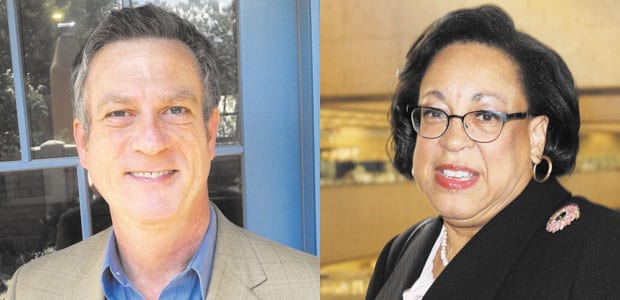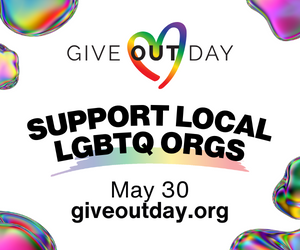Fairness Fort Worth voices concerns about favoritism by the organization for Texas’ larger cities
DAVID TAFFET | Senior Staff Writer
Dallas has worked hard to improve its Municipal Equality Index score and is excited that score may be 100 this year.
Human Rights Campaign, which compiles the MEI, understands that excitement and is even proud that their report generates that sort of excitement in a growing number of cities. That’s much better than the alternative — cities that don’t care what HRC thinks, or worse, cities that don’t care how their LGBT employees are treated. And there are lots of those.
But while it’s compiling its scores and sharing preliminary reports with cities to verify, it requires an amount of confidentiality.
Dallas Ethics and Diversity Officer Cheryl Orr set off a firestorm recently when she reported to the Dallas City Council Budget, Finance and Audit Committee that the city originally scored a 96 this year, but after she submitted additional information, the four points it needed to make a perfect 100 would be added.
The problem was her report was delivered during a public meeting that was broadcast on the Internet.
The Dallas Morning News and Dallas Observer both reported the news. Dallas Voice had the information a week earlier, but was told the information was off the record, so held off on publishing it.
Fairness Fort Worth President David Henderson decried Orr’s early release of the information. “This was nothing short of a preemptive, crass marketing move to establish a first impression of superiority over other cities, citing un-vetted scores of quite a few,” he said.
He criticized the headlines “Dallas gets perfect score” and “Dallas hits 100,” saying it was not a done deal. He also criticized Dallas LGBT leaders for not calling the city out.
“Sadly, the list of Dallas’ LGBT leadership publicly disavowing this behavior is practically non-existent, tacitly approving what should be vocally denounced,” Henderson said.
HRC responded to the release of the preliminary score with a letter to Dallas City Manager A.C. Gonzalez.
“I am writing to express the serious concerns of the Human Rights Campaign related to the recent release of Dallas’ draft Municipal Equality Index score,” HRC Legal Director Sarah Warbelow wrote in the letter.
Part of the research process involves allowing cities to review the draft to provide feedback. That feedback potentially raised the Dallas score by four points. Orr reported the city partnered with Coalition for Aging LGBT to host a conference on aging and city employees formed an employee resource group. In addition, Dallas had never gotten points for its LGBT mayor’s task force.
But Warbelow, in her letter explained that every page was clearly labeled “confidential draft not for publication,” in bold red and added an additional warning.
While scolding the city for its release of information, Warbelow tempered her anger.
“ HRC is encouraged by the pro-equality efforts Dallas has undertaken in the past year,” Warbelow wrote but also warned, “As a result of this, the MEI Team is exploring potential ways of penalizing cities for willfully breaching our terms of confidentiality.”
Orr responded that she was asked by the council for a briefing on where Dallas stands on LGBT issues. By ordinance, she’s required to deliver quarterly briefings to the council as part of the law that passed last year requiring equality throughout city government.
“It’s unfortunate the news has focused on the scores,” she said.
She said she repeated throughout the briefing that all scores were preliminary and could change until publication in November.
She and Gonzalez are writing a letter to HRC and next year, she said, she’ll postpone the briefing on the MEI score until after its public release.
Still, Henderson called the release of the preliminary scores unethical and said information about scores other cities would receive compromised their work to Dallas’ advantage.
“Those who purport to be the arbiter of equality and ethics must practice what they preach,” Henderson said.
Task Force member Erin Moore said, “We understand protocol was broken, but we’re really proud of the work Dallas has done to achieve this score.”
Inconsistencies
In addition to his outrage about the release of the scores of area cities, Henderson said he spoke extensively with HRC about how the MEI is compiled and what he called inconsistencies.
He was particularly concerned with how Texas cities were scored for their anti-bullying policies and in particular the inconsistency between how Dallas and Fort Worth were rated.
Part of the problem is that school systems in Texas are independent governmental bodies. The maps of the Dallas and Fort Worth independent school districts do not correspond to city limits.
Many students who live in Dallas attend Richardson, Mesquite, Plano and even Highland Park ISD schools, and suffer from those school systems’ varying anti-bullying policies, while students in cities like Wilmer, Hutchens and Seagoville, all within DISD, benefit from Dallas anti-bullying policies.
While DISD has comprehensive, enumerated anti-bullying policies, RISD does not. Lake Highlands residents, for example, all attend Richardson schools.
Fort Worth is similarly divided. But in the last MEI, Dallas got credit for DISD’s anti-bullying policy and Fort Worth lost points because some of its residents who live in other ISDs weren’t covered by FWISD’s anti-bullying policy. And Fort Worth’s policy has become the model for school districts across the state that are serious about tackling the bullying problem.
In Texas, what can a city do about school district policy? Absolutely nothing. Dallas Mayor Mike Rawlings has virtually no power over RISD policy, even though most of northeast Dallas falls into that district.
In addition, Henderson claims HRC favored large cities — Dallas and Houston — that host major fundraising events for the organization.
“Scores from 2014 met with considerable mistrust for inconsistencies as yet unexplained that led to perceived favoritism of large Texas cities that are home to considerable fundraising streams,” he said.
Additional work
Even if Dallas receives a final score of 100, both Dallas and Fort Worth have work to do on a number of transgender issues. Transgender healthcare is not fully covered. Trans homelessness is a problem that both cities must address.
In addition, Dallas does not have the Human Rights Commission that Fort Worth has to oversee compliance.
Those issues may become more important in the future when marriage equality won’t be an issue.
To see the full letter HRC sent to the Dallas city manager, see below.

This article appeared in the Dallas Voice print edition October 2, 2015.



















